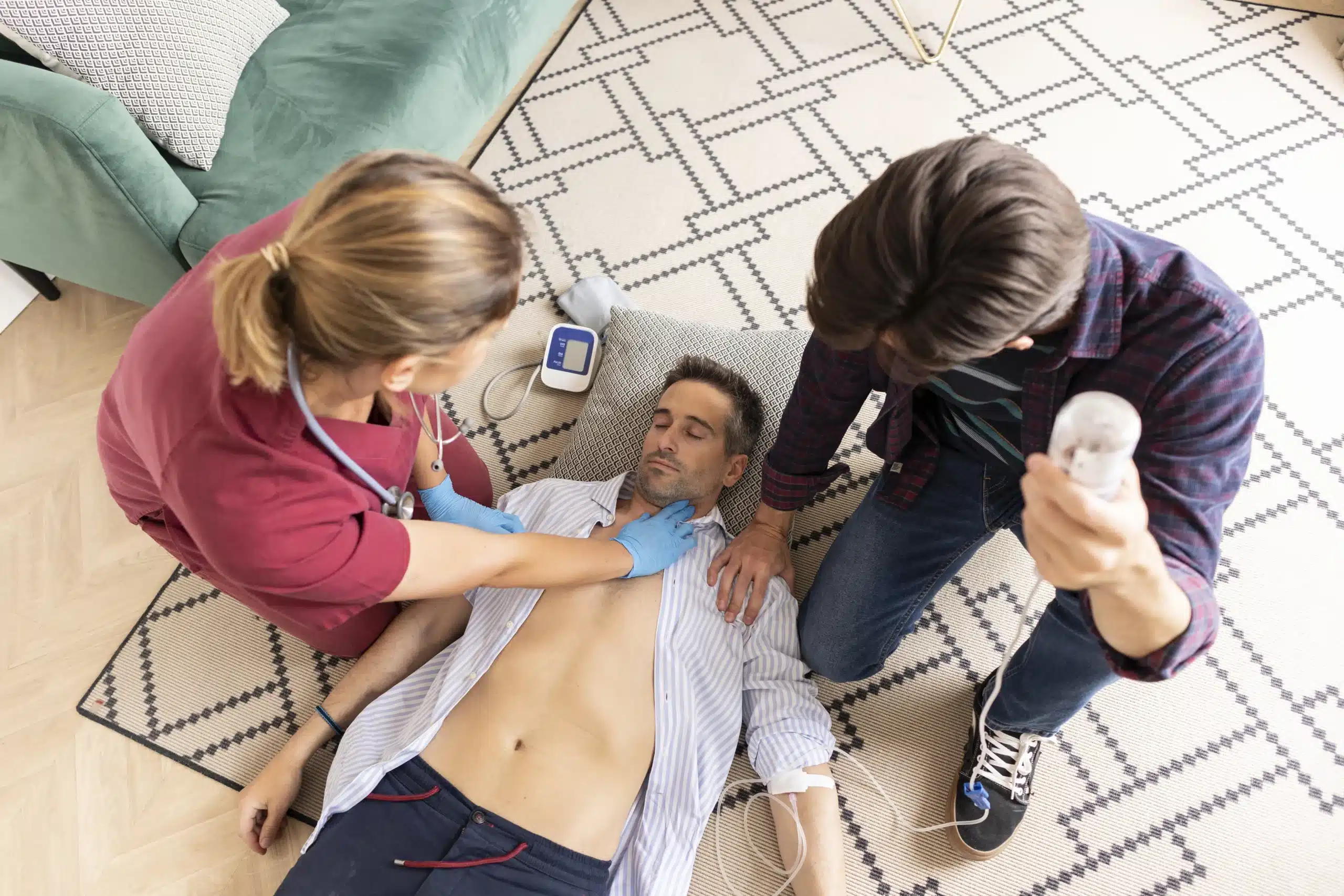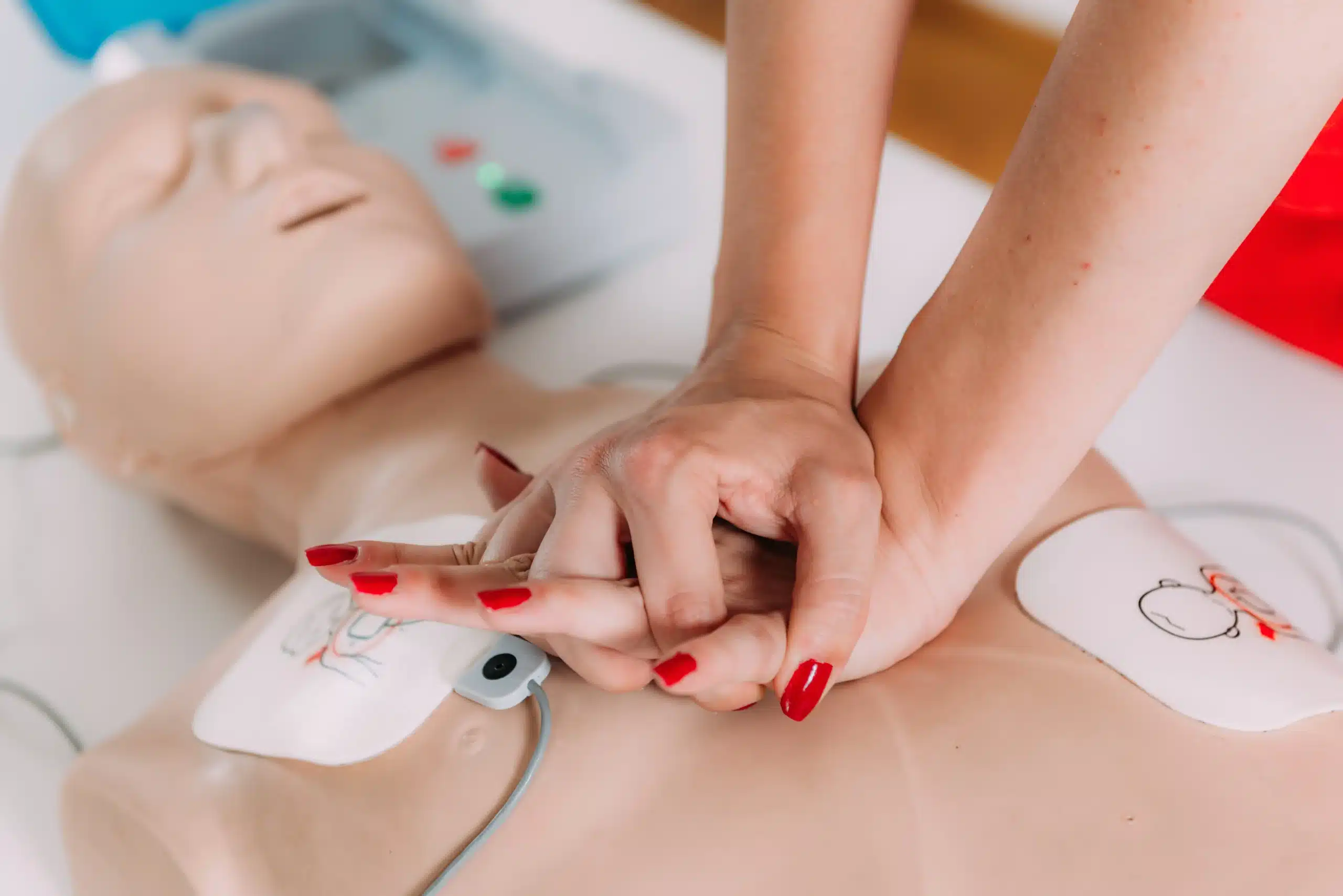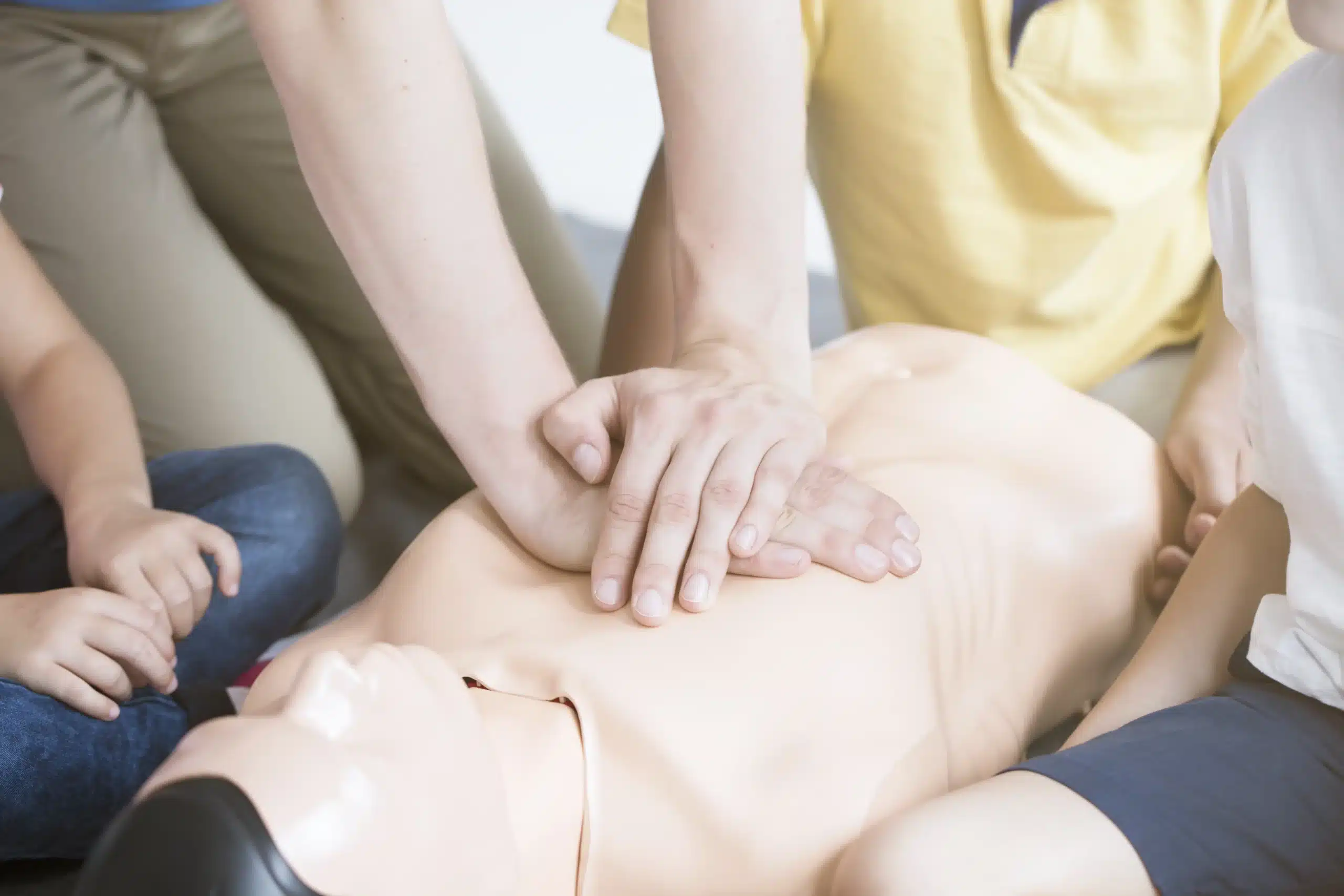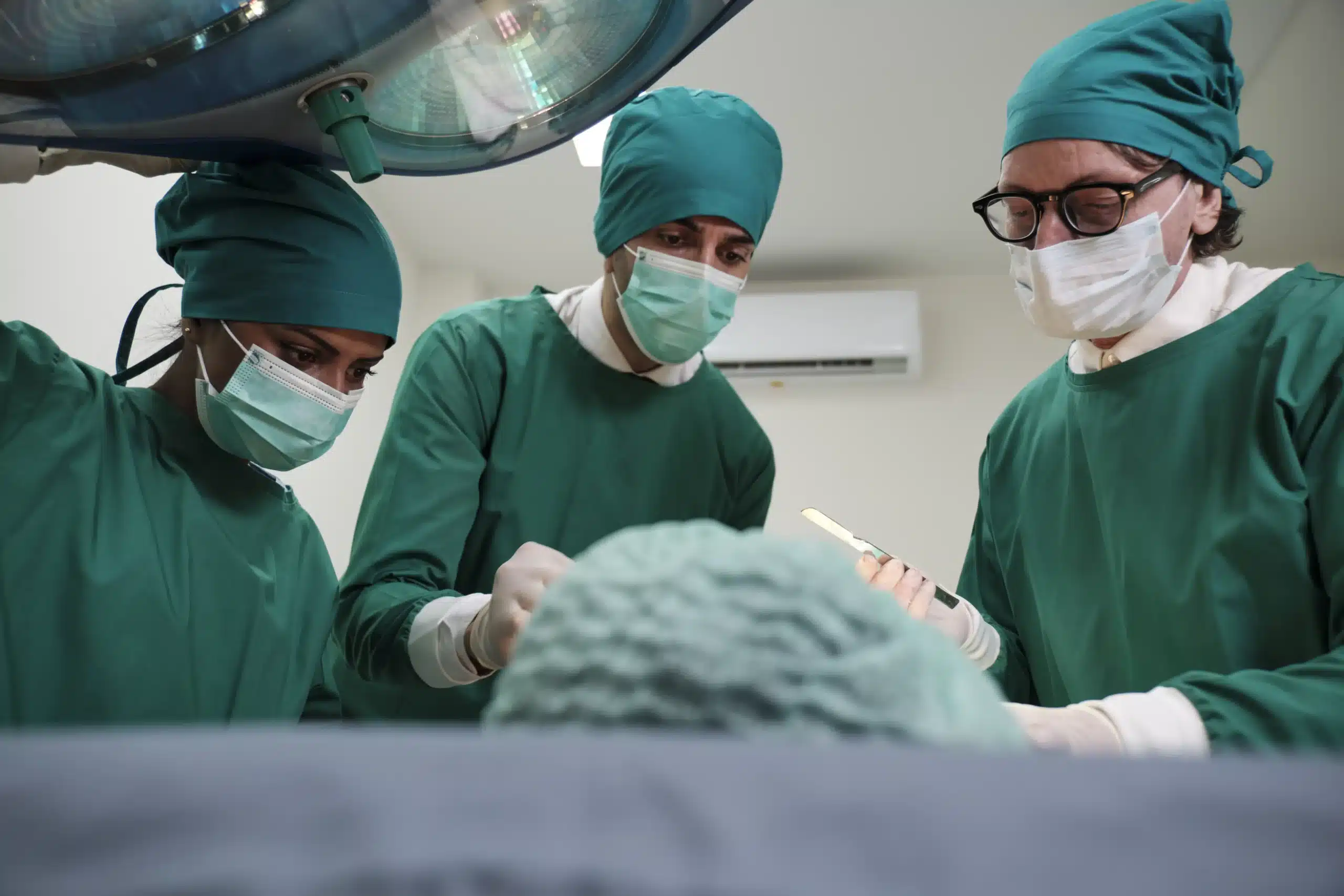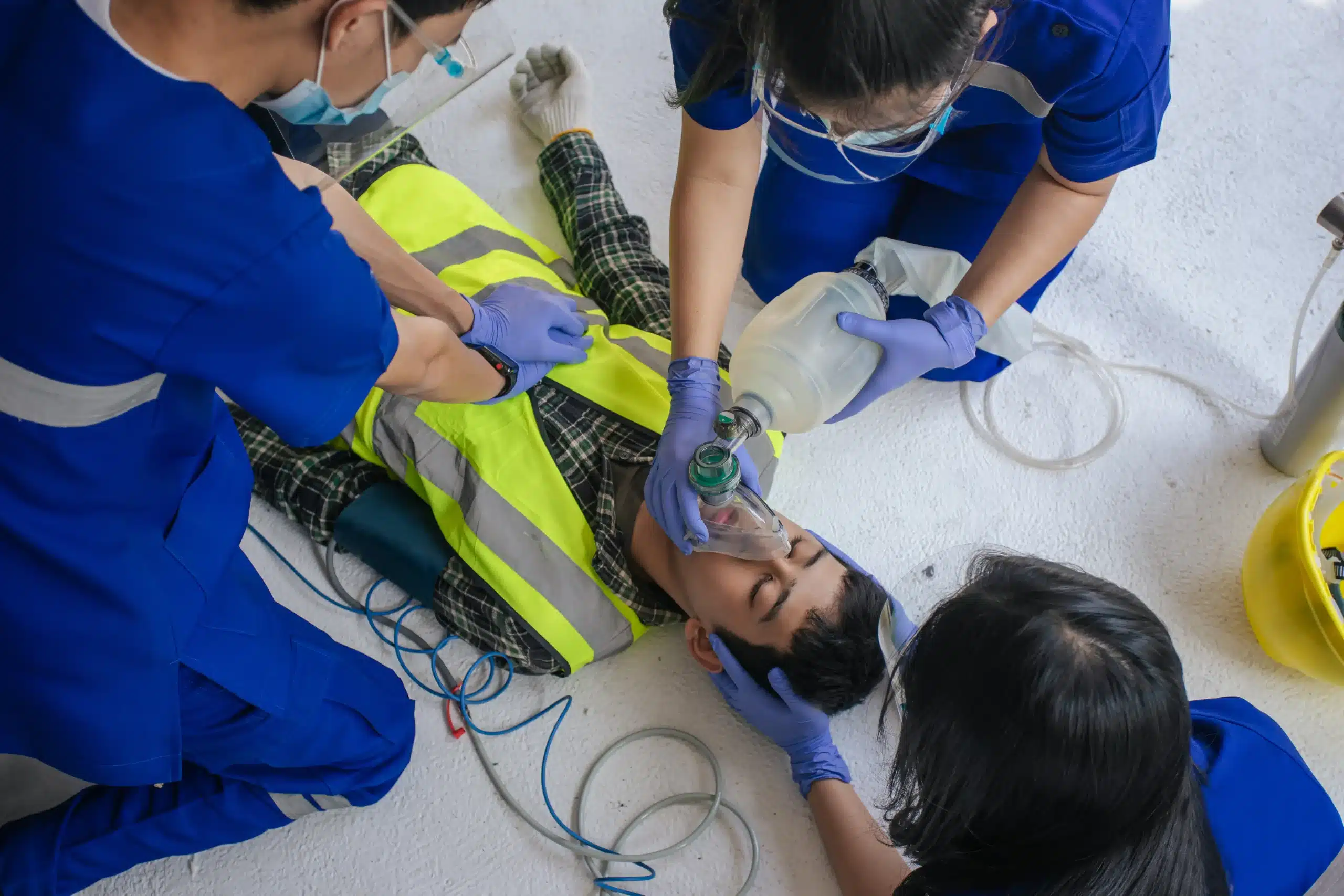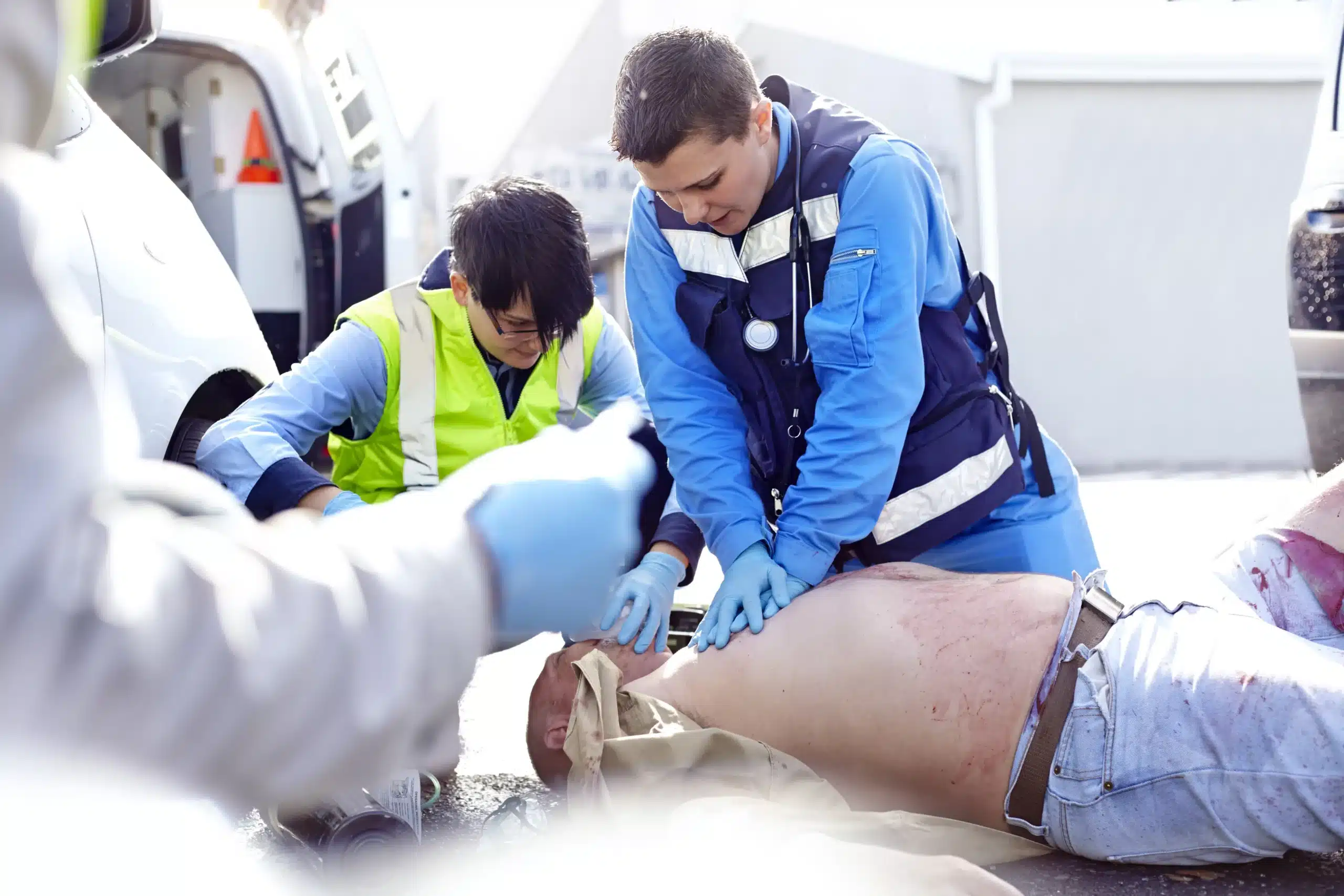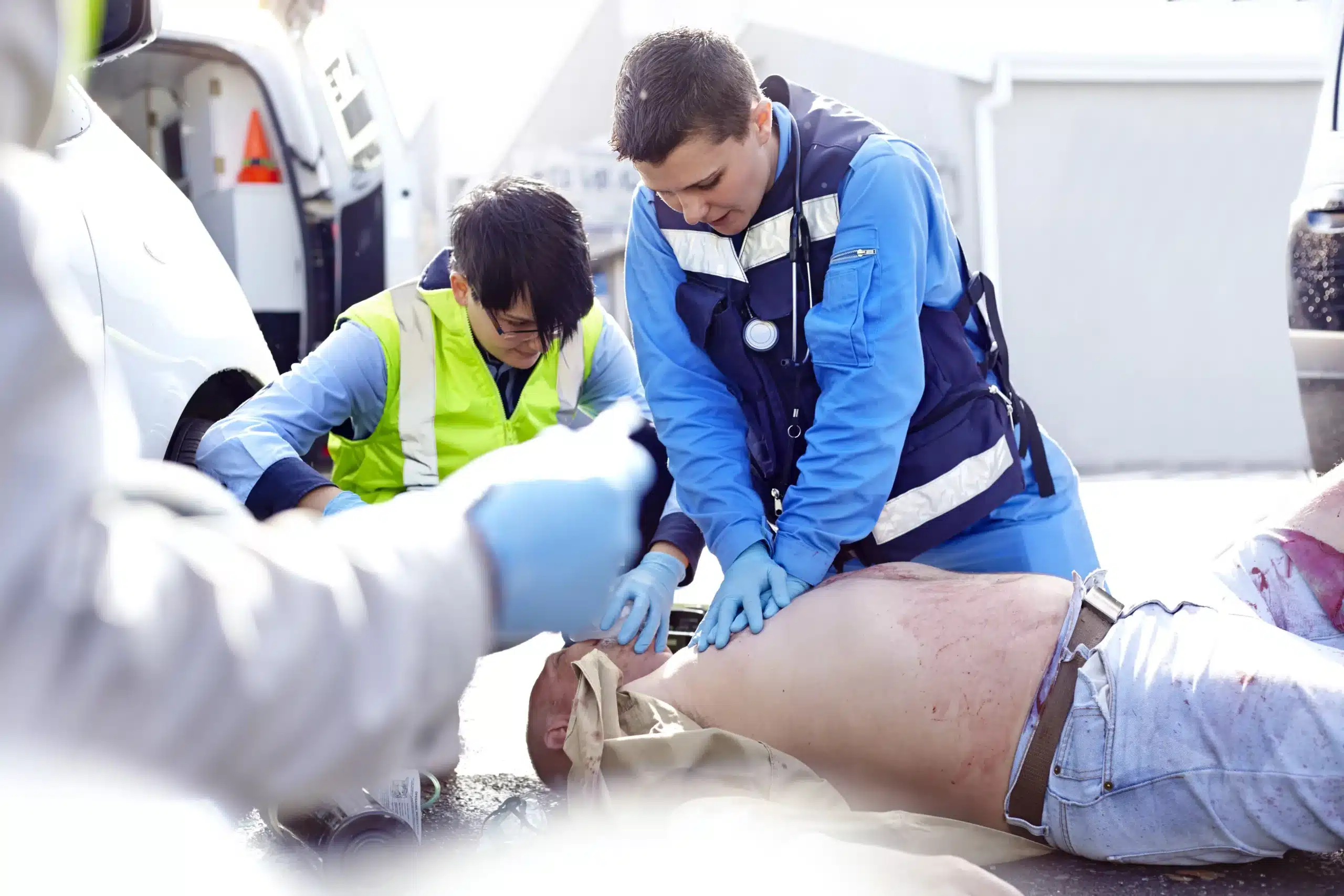Emergencies can happen anytime, anywhere. Are you ready to respond? This guide is your one-stop resource for finding CPR courses in Hayward. We’ll cover everything from the basics of CPR to advanced life support certifications like ACLS and PALS. Whether you’re a healthcare provider seeking recertification or a community member wanting to learn this life-saving skill, we’ll help you find the right training program. We’ll explore the different types of CPR courses available in Hayward, discuss costs and group discounts, and provide insights into what to expect during your training. Get ready to feel confident and prepared to make a difference.
Key Takeaways
- CPR training equips you to handle emergencies: From basic life support to advanced certifications, CPR courses provide the skills and confidence to respond effectively in critical situations, potentially saving lives. Choose the right course based on your individual needs and professional goals.
- Hayward CPR Classes offers flexible and affordable options: With daily classes in multiple locations and group discounts available, finding a convenient and cost-effective way to get certified is easy. They provide a range of AHA-certified courses, including BLS, ACLS, PALS, and first aid.
- Stay current with your CPR skills: Regular practice and timely renewals are essential for maintaining proficiency and ensuring you’re always prepared for an emergency. Refresher courses can reinforce your knowledge and enhance your response capabilities.
What is CPR?
CPR (Cardiopulmonary Resuscitation) is a life-saving skill everyone should know. It’s a critical intervention that helps maintain blood flow to the heart and brain during cardiac arrest. Think of it as a bridge keeping someone alive until professional medical help arrives. Learning CPR empowers you to make a real difference in an emergency. For more information on common misconceptions about CPR, check out this helpful resource from CPR Guardians.
BLS Certification
BLS (Basic Life Support) CPR classes teach the fundamental skills needed to respond effectively in life-threatening situations. This certification is essential for healthcare providers and anyone who might need to perform CPR. It covers core techniques like chest compressions, rescue breaths, and how to recognize the signs of a cardiac arrest.
ACLS
ACLS (Advanced Cardiovascular Life Support) certification builds upon the foundation of BLS. Designed for healthcare professionals involved in managing cardiopulmonary arrest and other cardiovascular emergencies, ACLS training provides advanced techniques for recognizing and treating these critical conditions. Learn more about ACLS certification at Hayward CPR Classes. It provides a deeper understanding of cardiovascular emergencies and equips professionals with the skills to lead and participate in resuscitation teams.
PALS
PALS (Pediatric Advanced Life Support) focuses on responding to emergencies in infants and children. This specialized training teaches healthcare providers how to assess and treat pediatric patients in critical situations. PALS certification is crucial for anyone working in pediatric care, ensuring they have the specific skills needed to handle emergencies involving young patients. Explore PALS courses offered by Hayward CPR Classes.
First Aid & CPR
Combining first aid and CPR training equips you with a comprehensive skill set to handle various emergencies. From treating minor injuries to responding to life-threatening situations, this combined training provides valuable knowledge and practical skills. It’s a smart choice for anyone wanting to be prepared for anything. Hayward CPR Classes offers these courses for individuals and groups, making it easy to find a class that fits your needs. Contact us to learn more.
Choose the Right CPR Course
Knowing which CPR course is right for you depends on your specific needs. Whether you’re a healthcare provider, a parent, or simply someone who wants to be prepared for emergencies, there’s a course designed to equip you with the right skills.
For Healthcare Professionals
Healthcare professionals in Hayward—including doctors, nurses, and EMTs—need up-to-date certifications to maintain their licensure and provide the best possible care. The American Heart Association RQI (Resuscitation Quality Improvement) program offers a streamlined way to earn your BLS, ACLS, and PALS certifications. RQI uses a combination of online learning and hands-on skills sessions, making it a convenient and effective way to stay current with the latest resuscitation guidelines. This blended learning approach ensures competency and provides the high-quality training required in fast-paced medical environments. For those seeking these certifications in Hayward, Hayward CPR Classes offers a variety of options.
For Parents & Caregivers
For parents, caregivers, and those working with children, knowing CPR and first aid can make all the difference in an emergency. CPR and first aid training equips you to respond confidently to common childhood injuries and illnesses, from minor cuts and scrapes to more serious situations like choking or allergic reactions. These courses often cover infant and child CPR, giving you the specific skills needed to care for younger children.
For Everyone Else
Learning CPR isn’t just for healthcare professionals and caregivers—it’s a valuable skill for everyone. Knowing how to perform effective bystander CPR can significantly improve survival rates in cases of cardiac arrest. Even if you’ve never had formal training, learning basic CPR can give you the confidence to step in during a critical moment and potentially save a life. Community CPR courses are often available and provide a foundational understanding of CPR techniques and how to respond in various emergency situations.
Costs & Value
Understanding CPR course pricing and the value you receive is key to choosing the right class. Let’s break down the costs associated with different CPR certifications and highlight the benefits you gain.
Individual Course Pricing
Individual course costs depend on the type of certification you need. Basic Life Support (BLS certification) courses generally start around $70. More advanced certifications, like Advanced Cardiovascular Life Support (ACLS), can range from $150 to $190 for renewals. Pediatric Advanced Life Support (PALS) renewals are typically priced similarly. Many training centers offer blended learning options, combining online coursework with in-person skills sessions. A blended learning BLS course might be available for around $63. Check with specific providers, like Hayward CPR Classes, for the most up-to-date pricing.
Group Discounts
If you’re training a team or group, group discounts can make training more affordable. Many CPR training centers offer discounted rates for groups. Some, like Hayward CPR Classes, can even conduct the training at your location, simplifying scheduling and creating a team-building opportunity. Contact Hayward CPR Classes to discuss your group’s needs and explore available discounts.
Certification
The value of your CPR training extends beyond the classroom. Upon successful completion, you’ll receive an American Heart Association (AHA) certification, often on the same day. This certification, typically valid for two years, demonstrates your current knowledge of life-saving techniques. This immediate certification is valuable, especially in healthcare and related fields requiring up-to-date credentials. A valid CPR certification can enhance your resume and open doors to new opportunities.
Instructor Qualifications
Knowing your instructor’s qualifications is key when choosing a CPR class. It ensures you’re learning from knowledgeable professionals and receiving high-quality training. Here’s what to look for in CPR instructors in Hayward:
AHA Certification
The American Heart Association (AHA) sets the standard for CPR training. Look for classes taught by AHA-certified instructors. This certification signifies that the instructor has completed a rigorous training program and adheres to the latest AHA guidelines for CPR and emergency cardiovascular care. Hayward CPR Classes offers courses led by AHA-certified instructors, ensuring you receive top-tier training. For those seeking other certifications like RQI, inquire about instructor credentials specific to that program.
Instructor Experience
Beyond certification, consider the instructor’s practical experience. Experienced instructors often bring real-world scenarios and insights to the classroom, making the training more engaging and applicable to real-life emergencies. Instructors with backgrounds in healthcare or emergency response can offer valuable perspectives and answer your specific questions effectively. For group discounts, it’s helpful to inquire about the team’s collective experience.
Teaching Styles
Different people learn in different ways. Some thrive in a traditional classroom setting, while others prefer a more blended approach. Many CPR courses now incorporate online learning modules combined with in-person skills sessions. This hybrid model offers flexibility and allows you to learn the cognitive material at your own pace before practicing the physical skills. Some CPR classes in Hayward utilize this blended learning approach, incorporating online components followed by hands-on skills testing. This allows for independent practice with voice-activated mannequins and instructor support available by phone. When choosing a class, consider your learning style and ask about the teaching methods used. Contact us to discuss your preferences and find the best fit for you.
Your CPR Class Experience
Knowing what to expect can help you feel prepared and confident going into your CPR class. Hayward CPR Classes prioritizes a comfortable and effective learning environment.
Course Format
The American Heart Association RQI (Resuscitation Quality Improvement) program is a popular, modern, and efficient way for medical and healthcare professionals in Hayward to get their official American Heart Association BLS, ACLS, and PALS certifications. This blended learning program combines online coursework with in-person skills sessions. For those seeking a more traditional classroom setting, those options are also available. Daily classes can even be held at your location for groups, making it convenient for busy schedules and workplaces.
Hands-On Practice
CPR classes aren’t just lectures. You’ll actively participate in hands-on training using a CPR training mannequin. This allows you to learn the correct hand placement and the appropriate depth and pressure for chest compressions. This practical experience builds muscle memory and confidence, ensuring you’re prepared to act in a real emergency. The use of training mannequins with feedback technology helps students refine their technique and improve the overall quality of their CPR.
Accommodations
We understand that everyone has different learning styles and needs. The physical aspect of CPR training can be demanding, so if you have any physical limitations, please contact us to discuss how we can best accommodate you. Rescheduling is always an option without incurring extra fees. Our goal is to empower everyone with the knowledge and skills of CPR to potentially save a life. Even with physical limitations, the desire to help combined with CPR knowledge can significantly improve someone’s chances of survival.
Benefits of CPR Certification
Knowing CPR can be a game-changer, both personally and professionally. It empowers you to respond effectively in critical situations and make a real difference in your community. Let’s explore some key advantages of becoming CPR certified.
Career Advancement
For many healthcare providers, BLS for Healthcare Providers CPR certification is a must-have. It’s often a prerequisite for jobs in hospitals, clinics, and other medical settings. The American Heart Association (AHA) offers BLS CPR classes that give you the skills to handle emergencies confidently, strengthening your resume and opening doors to career opportunities. Even outside the healthcare field, CPR certification can give you an edge, demonstrating your commitment to safety and preparedness.
Emergency Preparedness
CPR training equips you with the ability to respond effectively during emergencies. Learning CPR skills can save lives by maintaining vital blood flow and oxygen to the brain and other organs until professional medical help arrives. Studies show that effective bystander CPR can significantly improve survival rates after cardiac arrest. Having these skills can make you a valuable asset in any crisis, whether at home, work, or out in your community.
Community Safety
Becoming CPR certified means you’re ready to step up when it matters most. Your willingness to help, combined with your CPR knowledge, can dramatically increase someone’s chance of survival. Plus, the hands-on practice you get with training mannequins during your CPR class builds your confidence and proficiency. By getting certified, you contribute to a safer environment for everyone around you.
Register & Prepare
Now that you’ve explored the different CPR course options, you’re ready to register for a class. This section covers everything you need to know to prepare, from signing up to what to expect on training day.
Registration Options
Hayward CPR Classes offers flexible registration to fit your schedule. We offer daily CPR classes in Hayward and surrounding areas, including Union City and San Leandro. We have various options available, whether you prefer a weekday evening or a weekend course. For larger groups, we can even bring the training to your location. Contact us to discuss group discounts and find a time that works for your team.
Prerequisites
While there aren’t strict prerequisites for learning CPR, certain certifications, like Basic Life Support (BLS) for Healthcare Providers, are essential for healthcare professionals. Choose the right course based on your needs and career goals. If you have any physical limitations, please let us know when you register. The physical aspect of CPR can be demanding, but we’re happy to accommodate you and ensure a comfortable learning experience. Rescheduling is always possible.
What to Bring
CPR training involves hands-on learning. You’ll practice chest compressions and other techniques using CPR training mannequins. You don’t need to bring any special equipment. Just come ready to learn and participate. You’ll receive your American Heart Association certification card the same day you complete your skills test.
Maintain Your Certification
Keeping your CPR skills sharp is just as important as learning them in the first place. This section covers how to maintain your certification and why continued learning matters.
Renewal Process
Your American Heart Association (AHA) BLS CPR certification is valid for two years. To stay current and prepared for emergencies, you’ll need to renew it before it expires. This ensures your skills are up-to-date and you’re ready to respond effectively if needed. Check with your certifying organization, such as Hayward CPR Classes which offers renewal courses, for specific requirements and processes.
Continuing Education
Even if your certification isn’t due for renewal yet, ongoing education in CPR is incredibly valuable. Studies show that refresher training every few months helps maintain and even improve CPR skills. One study found that participants were eager for refresher sessions roughly every 11-12 weeks after their initial training. Regular practice builds confidence and muscle memory, making you a more effective responder in a real emergency. Plus, ongoing feedback during these sessions can help you refine your technique and provide even better care. Consider adding refresher courses, like those offered by Hayward CPR Classes, to your schedule to stay at the top of your game. This commitment to continued learning demonstrates a dedication to providing high-quality CPR and strengthens your ability to respond confidently in critical situations.
CPR Training Providers in Hayward
Finding the right CPR class means finding a provider that fits your needs and schedule. Hayward has several options, each with its own approach to CPR training. Here’s a quick rundown to help you choose:
Hayward CPR Classes
Hayward CPR Classes offers American Heart Association (AHA) courses, including BLS, ACLS, PALS, CPR, and First Aid. They’re a woman-owned business and pride themselves on convenient scheduling, with classes offered daily in Hayward and surrounding areas. Learn more about their BLS, ACLS, and other courses, as well as information on group discounts.
American Red Cross
The American Red Cross is a well-known provider of CPR/AED and First Aid certification. They offer courses for adults, children, and infants, with both online and in-person options available. You can explore their course catalog to find a class that works for you.
Bay Area CPR
Bay Area CPR provides training with online components followed by in-person skills testing. They offer classes daily and can even come to your location for group training. Learn more about their availability and group discounts.
CPR Education
CPR Education focuses on providing high-quality CPR and First Aid training in Hayward and the surrounding areas. They aim to equip residents with the skills they need to save lives. Visit their website for details on their course offerings.
Emergency & Health Training Center
With locations in Hayward, San Jose, and Milpitas, the Emergency & Health Training Center offers BLS, ACLS, and PALS courses. You can find more information about their Hayward classes on their website.
Related Articles
- Why CPR is Crucial in Healthcare – CPR and First-Aid Training
- BLS for Healthcare Providers in Union City: A Guide – Hayward CPR Classes
- ACLS HeartCode San Leandro: Your Certification Guide – Hayward CPR Classes
- AHA PALS Classes in Hayward, CA – Hayward CPR Classes
- First Aid in Union City: Your Complete Guide – Hayward CPR Classes
Frequently Asked Questions
What’s the difference between BLS and ACLS?
BLS focuses on the essentials of CPR, giving you the skills to respond to life-threatening emergencies. ACLS builds upon those basics, providing healthcare professionals with advanced techniques for managing cardiovascular emergencies and leading resuscitation teams. It’s more in-depth and specialized for those working in healthcare settings.
How do I choose the right CPR class for me?
Think about your role and who you’ll be using these skills for. If you’re a healthcare provider, BLS or ACLS certification is likely required. Parents, caregivers, or those working with children might want to focus on CPR/First Aid courses that cover pediatric emergencies. If you’re looking for general knowledge and preparedness, a community CPR course is a great starting point.
How much does CPR certification cost?
Costs vary depending on the type of certification and the training center. Basic CPR classes are generally more affordable than advanced certifications like ACLS. Many providers offer group discounts, so if you’re training with friends, family, or colleagues, be sure to ask about those options.
What can I expect during a CPR class?
Expect a mix of instruction and hands-on practice. You’ll learn the theory behind CPR and then practice those skills on training mannequins. Many classes now incorporate online learning modules, allowing you to learn the material at your own pace before practicing the physical skills in person.
How do I maintain my CPR certification?
CPR certifications are typically valid for two years. You’ll need to take a renewal course to keep your certification current. Even if your certification isn’t expiring soon, regular practice and refresher courses are highly recommended to keep your skills sharp and your confidence high.
